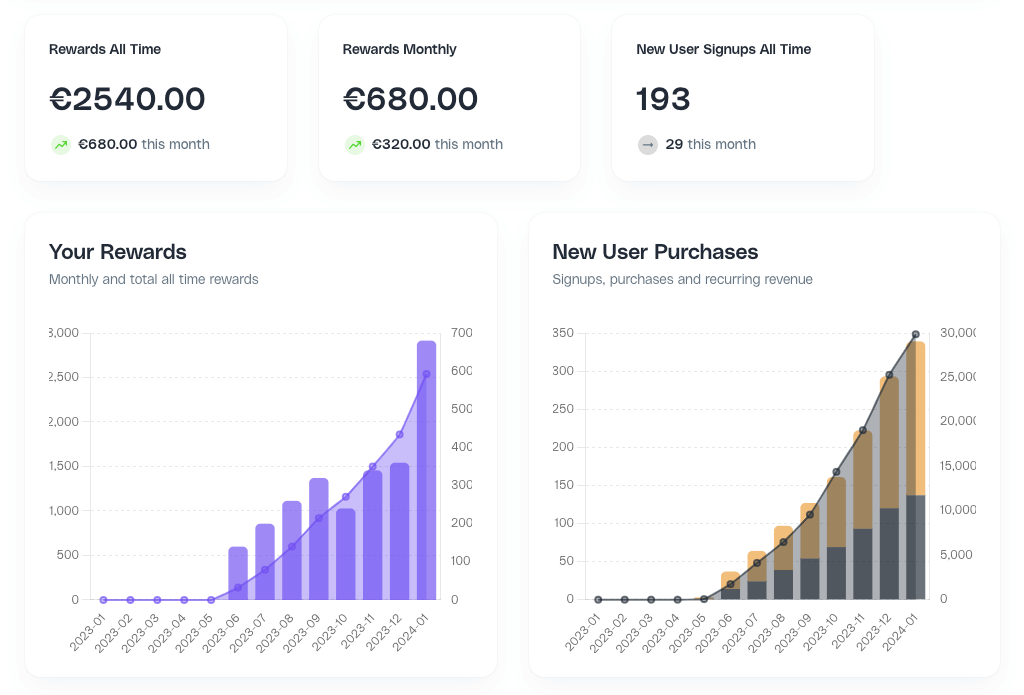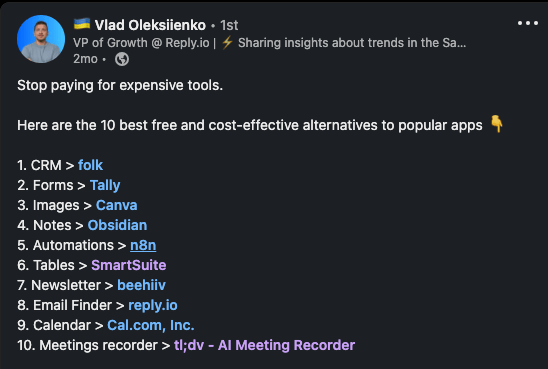Affiliate marketing has become a popular strategy for businesses to generate additional revenue and expand their customer base. By partnering with affiliates, companies can promote their products or services through an extensive network, reaching a wider audience than they could on their own. In this article, we will delve into the world of affiliate marketing, exploring its basics, types, how it works, and the benefits and challenges associated with it.
Understanding the basics of affiliate marketing
Definition and importance of affiliate marketing
In simple terms, affiliate marketing is a performance-based marketing technique where businesses reward affiliates for driving traffic or generating sales to their website. It is a win-win situation for both the merchant and the affiliate. The merchant gains exposure and new customers, while the affiliate earns a commission for every successful referral.
This form of marketing is crucial in today's digital landscape as it offers an effective way to increase brand visibility, reach a wider audience, and boost sales. It allows businesses to tap into the influence and marketing skills of affiliates who have a dedicated following and can vouch for the quality of products or services.
Key components of affiliate marketing
A successful affiliate marketing program relies on several key components:
- Merchants: These are the businesses or individuals who own the products or services being promoted. Having a designated landing page is a great way of sourcing affiliates - see here for an example.
- Affiliates: Affiliates play a crucial role in promoting the merchant's offerings. They can be individuals or companies who have relevant websites, blogs, or social media profiles.
- Affiliate Platforms: These networks act as intermediaries between merchants and affiliates. They provide a platform for affiliates to find suitable affiliate programs and provide tracking and reporting tools. Cello's Partner Program, for instance, serves this function.
- Consumers: The ultimate target of affiliate marketing are the consumers who make purchases through the affiliate's referral.

The different types of affiliate marketing
Pay Per Sale (PPS)
Pay Per Sale is the most common type of affiliate marketing. In this model, affiliates receive a commission based on the percentage of the sales they generate. It ensures that affiliates are motivated to drive quality traffic and secure successful conversions.
Pay Per Click (PPC)
In the Pay Per Click model, affiliates earn a commission every time a user clicks on their affiliate link, regardless of whether a purchase is made. This type of affiliate marketing is commonly used in contexts where direct sales may be challenging.
Pay Per Lead (PPL)
Pay Per Lead is a model where affiliates earn a commission based on the number of leads they generate for the merchant. These leads can be in the form of email sign-ups, completed surveys, or other desired actions by the user.

How affiliate marketing works
The role of affiliate marketers
Affiliate marketers act as intermediaries between merchants and consumers. Their primary objective is to promote the merchant's products or services through various marketing channels. They create compelling content, such as reviews, tutorials, or promotional materials, that engage potential customers and encourage them to make a purchase.
The process of affiliate marketing
The process of affiliate marketing can be summarized in a few main steps:
- Affiliate Selection: Affiliates choose affiliate programs that align with their audience's interests and preferences.
- Promotion: Affiliates create unique and engaging content to promote the merchant's offerings, utilizing various marketing channels, such as websites, blogs, social media platforms, or email newsletters.
- Conversion Tracking: Affiliate networks provide unique tracking links or codes to affiliates. This allows merchants to track the origin of the sale or lead generated by each affiliate.
- Commission Payment: Once a sale or lead is generated, the merchant calculates the commission owed to the affiliate and pays them accordingly, usually on a predetermined payout schedule.


Benefits of affiliate marketing
Advantages for merchants
Affiliate marketing offers several benefits for merchants:
- Increased Reach: By leveraging the network of affiliates, merchants can extend their reach to new audiences and potentially gain market share in previously untapped markets.
- Cost-Effective Advertising: Instead of paying for advertisements that may or may not yield results, merchants only pay a commission when a sale is made or a lead is generated, maximizing their return on investment.
- Brand Ambassadors: Affiliates who genuinely believe in the merchant's products or services can become powerful brand ambassadors, increasing brand credibility and trust.
Advantages for affiliates
This form of marketing also provides numerous advantages for affiliates:
- Passive Income: Affiliates can earn a passive income by promoting products or services that interest their audience, while focusing on other aspects of their business.
- Diverse Revenue Streams: By partnering with multiple affiliate programs, affiliates can create multiple revenue streams, increasing their earning potential.
- Flexibility: Affiliates have the flexibility to choose their working hours, marketing channels, and the products or services they want to promote.
Challenges in affiliate marketing
Common obstacles for affiliates
While affiliate marketing offers numerous opportunities, it is not without its challenges:
- Competition: As the popularity of affiliate marketing grows, competition among affiliates increases, making it crucial to stand out and provide unique value.
- Building Trust: Affiliates need to build trust with their audience by consistently promoting high-quality products or services that meet their expectations.
- Technical Skills: Some of the marketing strategies require technical knowledge, such as search engine optimization (SEO) and website optimization, which may pose a learning curve for affiliates.
Overcoming challenges in affiliate marketing
Despite the challenges, affiliates can overcome them with the right approach:
- Continuous Learning: Staying updated with industry trends and continuously improving skills can help affiliates stay ahead of the competition.
- Building Relationships: Cultivating strong relationships with merchants and consumers can foster trust and open doors to new opportunities.
- Experimentation: Trying different marketing strategies, analyzing data, and adapting accordingly can pave the way for success in affiliate marketing.
In conclusion, affiliate marketing is a powerful marketing strategy that benefits both merchants and affiliates. It offers a cost-effective way to expand reach, increase sales, and create mutually beneficial partnerships. By understanding the basics, types, and workings of this form of marketing, businesses and individuals can leverage this strategy to drive success in the ever-evolving digital landscape. So, if you are ready to take your digital presence to new heights, exploring the world of affiliate marketing is a step in the right direction.
Unlock your SaaS product's growth with Cello
Ready to transform your users into a dynamic growth engine for your SaaS product? With Cello, you can effortlessly integrate a peer-to-peer referral program that turns user engagement into viral growth. Experience the simplicity of adding a referral program in just about 4 hours of development time, and watch your conversion rates soar with our success-based pricing model. Don't miss out on the opportunity to enhance your product's sharing capabilities and automate your rewards system. Take the first step towards harnessing the power of user-led growth and book a demo to see Cello in action today.
Resources
Related Articles

7 Best B2B Referral Software (2025 Guide)
Which referral software should I choose? In the world of referral marketing, choosing the right ...

Scaling and Maintaining a B2B User Referral Program
Learn how to set the right incentives for B2B SaaS user referral programs

What are User Generated Content Growth Loops?
User Generated Growth (UGC) loop is a growth engine where users create content that attracts ...

